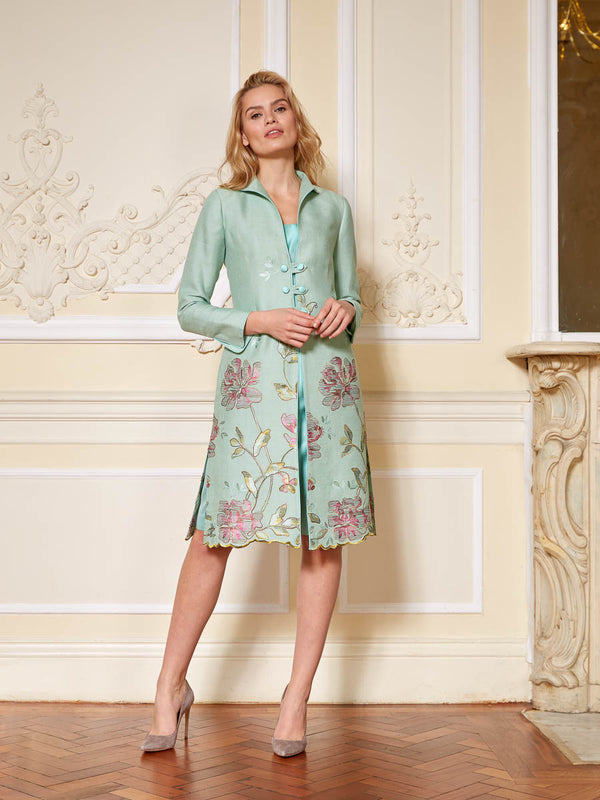The Importance of Fabrics
The importance of fabrics
To create enough fabric for just one garment requires significant use of energy, water, chemicals and human-power. So, managing this to ensure energy, water and chemical input is minimised whilst human-power is cared for, is crucial to positive environmental and social performance.
Wool
Wool is one the oldest fibres used for clothing. Good quality wool keeps you warm, is comfortable and long lasting. Wool does have a moderate environmental impact if you only look at the preliminary stages of its lifecycle, such as breeding and processing. However, if the wool is of good quality, in most instances this is offset throughout the garment's lifecycle, due to reduced washing requirements and its longevity.
We endeavour to use only the highest quality wools, sourced from historic British woollen mills and long-standing knitwear factories. We even use a recycled cashmere in our premium morning coat. All of our wools are processed in Europe (prominently in the UK), meaning they adhere to strict European guidelines of chemical usage. Being a natural substance, when wool is ready to be disposed of (if of course it is no longer recyclable) it will biodegrade back into nature.

Silk
Silk plays a very important part at Favourbrook across both menswear and womenswear in the form of dresses, waistcoats and ties. We work with a small number of excellent suppliers in the UK and Como, Italy who all have very stringent processes with regards to the provenance of their fabrics. In fact, we are very proud to use a silk weaver based in Suffolk that has been operating for some 300 years!

According to Goodonyou.com, "silk is spun from the long threads which make up the inner cocoon of a silkworm. The fibres are in fact saliva, produced by the worm to insulate itself until it is time to transform. The raw silk threads are harvested and then reeled together for commercial use. When done well, silk manufacturing can be a harmonious and low waste process. Silk worms keep a raw, gluten-free, dairy-free diet which consists entirely of mulberry leaves. The mulberry is a hardy tree, resistant to pollution and easy to cultivate. The tree bark has medicinal properties and the fruit can be used as a natural dye or to fill a pie. The leaves of the mulberry will feed the worms and the worms, in turn, can feed the farmers."
Linen
We source our linen cloths from a small number of producers: a very well-respected family-run supplier in Austria that has been operating for over 140 years; Irish linen weavers based in Ulster who have produced fine cloths since 1880; and an Italian family-run business that has long been based in the Mecca of European fabric production, Biella. Linen has been used for centuries and is known for its soft, breathable qualities. It has a low environmental impact due to its low water and insecticide requirements. This makes it a great option for summer clothing for practical and environmental reasons. Linen plays a key part of our spring and summer collections for these very reasons.
